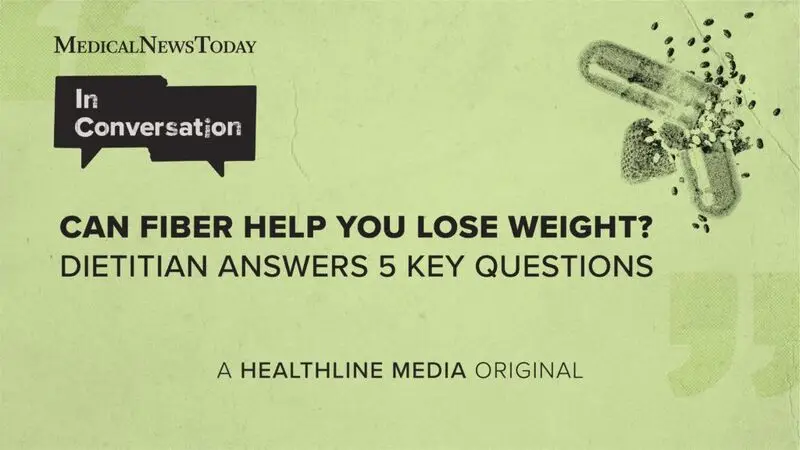When it comes to weight loss, many people track their macros — i.e., their proteins, fats, and carbohydrates. However, as a humble nutrient, fiber is often overlooked. But what if this is the missing ingredient to weight loss success? Can fiber supplements replace whole foods? In this podcast, a nutritionist answers readers’ questions about fiber and more.

Nowadays, the internet is awash with articles, charts, and recipes centered around eating more protein — anything from a 30-gram-protein breakfast to high-protein drinks and more — to naturally lose weight. And although the key to achieving good weight loss results is indeed a higher protein intake, there is a nutrient that is often overlooked: fiber.
Fiber is crucial not only for digestive functioning but overall Health. Studies have shown it can lower LDL cholesterol, reduce blood pressure, and protect against heart disease. Newer research also shows that fiber may promote weight loss and enhance sensitivity to insulin.
However, statistics show that less than 5% of Americans realistically meet their recommended daily fiber intake, which is on average up to
In this episode of In Conversation, we’ll be tackling burning questions such as: What is fiber, and why is it important for our bodies? How can we tell whether we are eating enough fiber? Is it right to call fiber nature’s Ozempic?
We’ll differentiate between soluble and insoluble fiber while discussing the ideal daily intake for different people. We’ll also touch on how fiber supplements like psyllium husk compare with whole foods, weighing their benefits for our well-being. We will also look at how fiber plays a crucial role in fighting insulin resistance and its potential role in supporting weight management goals.
To discuss this and more, we’re joined by registered dietitian Lisa Valente, MS, RD. Lisa holds a Master of Science in nutrition communications from the Friedman School of Nutrition Science and Policy at Tufts University, and she completed her dietetic internship at Massachusetts General Hospital.
After the podcast recording, for the readers of MNT, we also asked Lisa what her top favorite high fiber foods were.
“I will say frozen berries, fresh too, but frozen berries tend to be a little bit higher in fiber for a fruit. And when you buy them frozen, they’re just more affordable and easier to have on hand. [T]hey don’t go bad on you in a day — so, you can add those to smoothies or mix them into oatmeal or yogurt,” she said.
Lisa said her second choice would be whole wheat pasta and shared a fun fact about fiber.
“Brown rice only has one gram more of fiber than white rice, but whole wheat pasta has significantly more than white pasta. [It creates] like this nice fiber-rich carbohydrate base to your dinner to add some vegetables or protein to,” she said.
Her third choice was chia seeds.
“I sprinkle them on oatmeal, but you can also make chia seed pudding where you soak them with some milk or non-dairy milk and add a little bit of fruit. They’re very filling and they not only have fiber, but they also have omega-3 and a little bit of protein. So I feel like they’re sort of this tiny but mighty little seed where you can check off a lot of nutrition boxes at once. So if I had to pick three, that’s a good starting place for me,” she told us.
Please listen to our podcast episode in full below or on your preferred streaming platform.
 |  |  |
Our podcast has also been shortlisted in two categories — Best Health, Wellbeing & Food Podcast and the Best Science & Medical Podcast — at this year’s Publisher Podcast Summit and Awards. So, if you’d like to listen to more episodes, including the two that were nominated, head to Spotify or this page.





